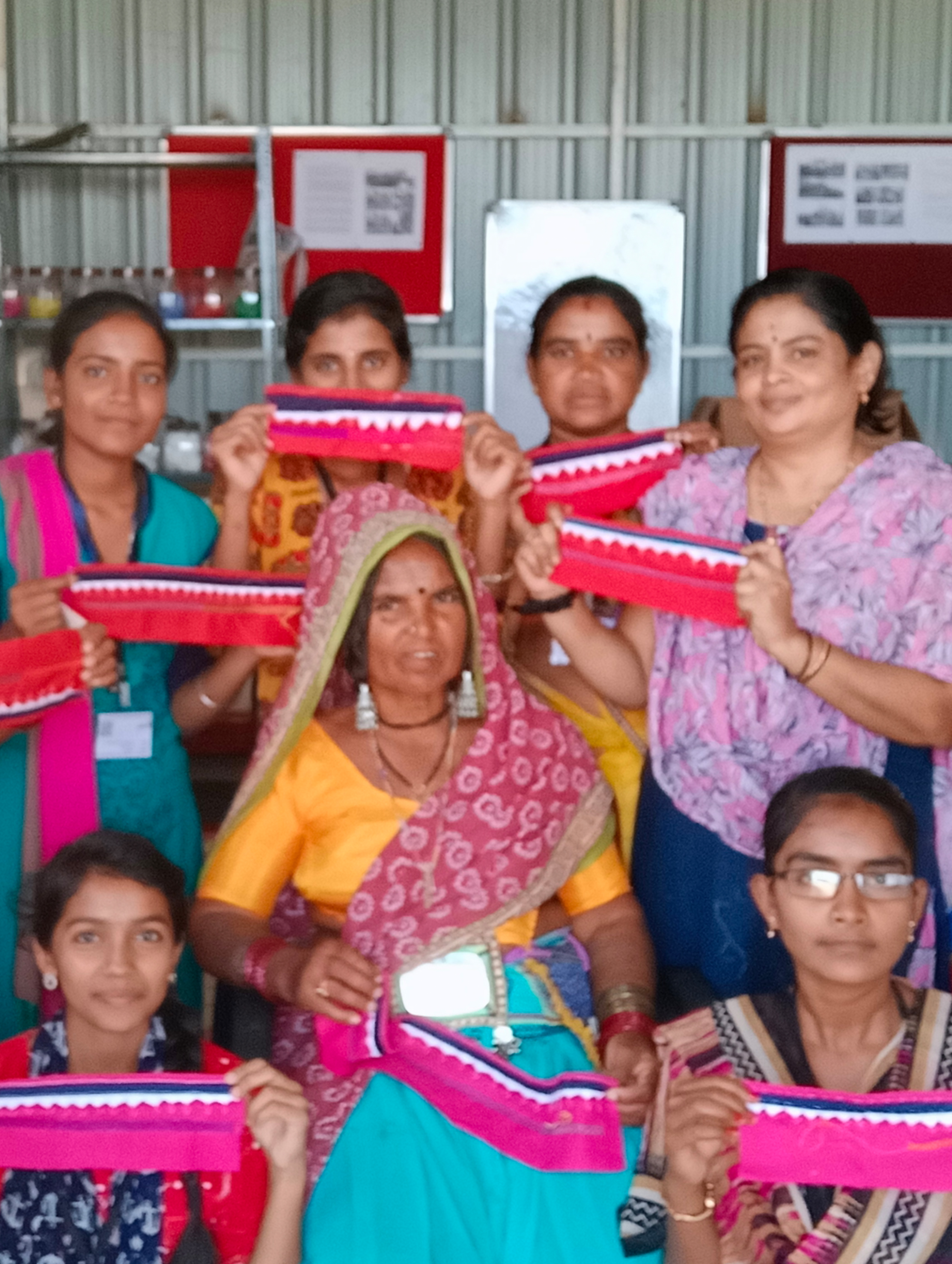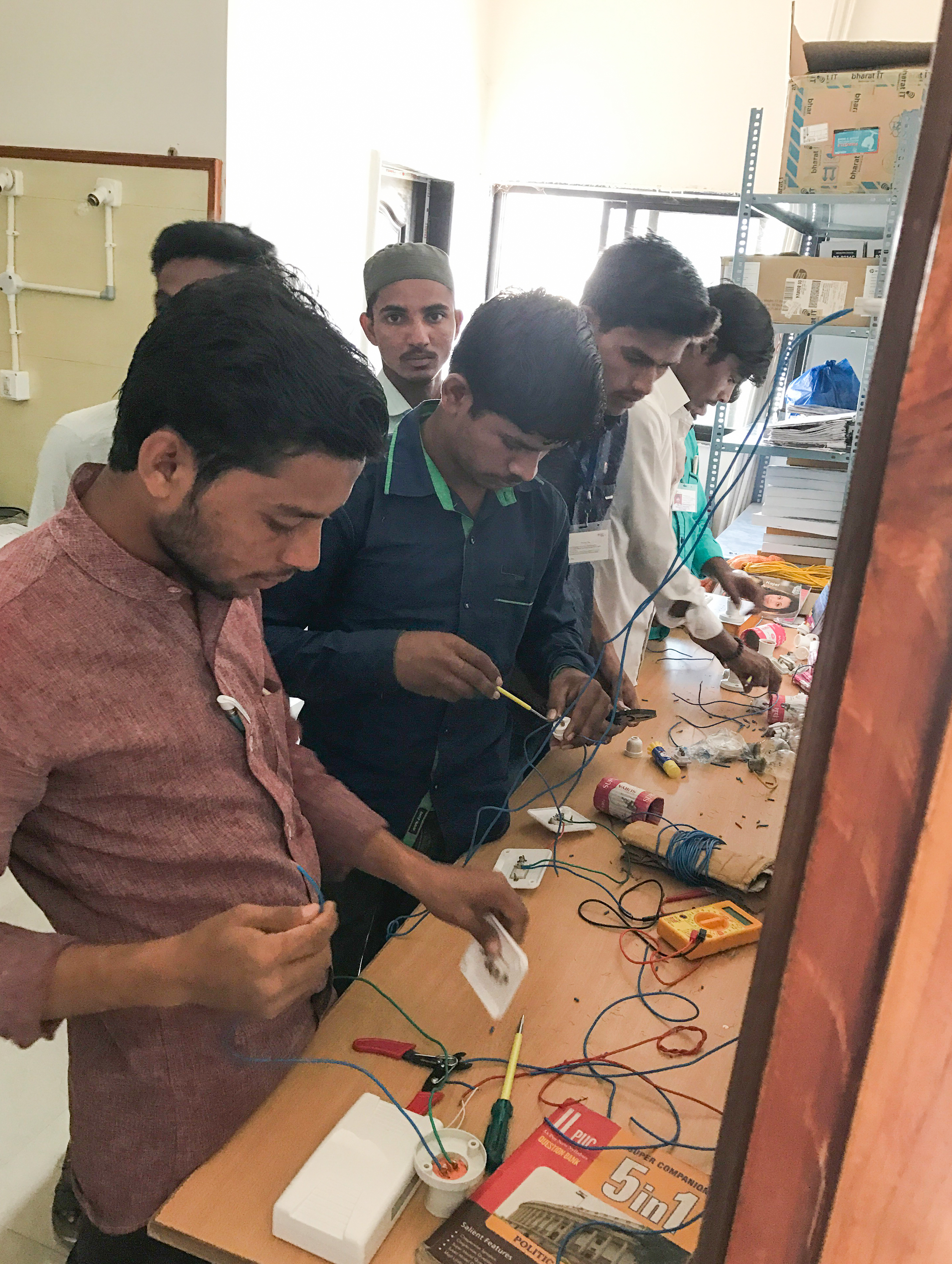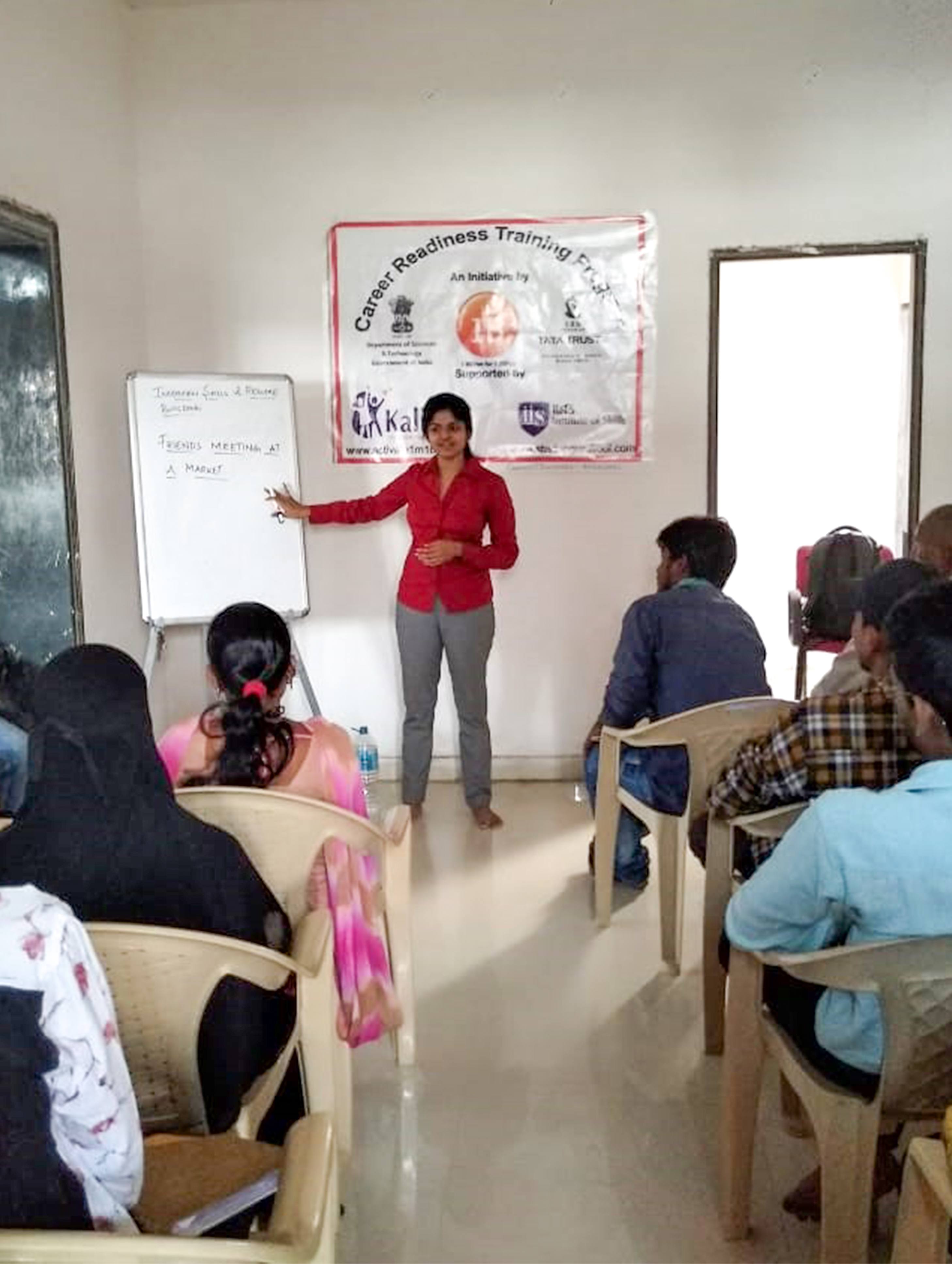
Get Dhwani on
Google Play
The economy in Yadgir is predominantly dependent on agriculture. The district witnesses
a high incidence of seasonal unemployment and migration. Approximately 60% of the population migrate
seasonally to nearby cities in search of small-time jobs. Lack of skills, absence of knowledge about
jobs and lack of industrialisation compounds the problem of unemployment and is responsible for this
migration.
Our approach builds on both farm and non-farm based interventions. The goal is to not only benefit
the individual through upskill and relevant livelihood opportunities, but also grow the economy in
and around Yadgir to reduce the incidence of migration.
We have identified three core areas of skill development — Micro-enterprises and Entrepreneurship, Vocational Training and Finishing Schools.

We are piloting a value chain model -- maximizing value for producers who
are at the bottom of the value chain and creating an ecosyatem of micro,
small and medium enterprises.
A mentorship programme aims to create a
group of mentors who will directly interact with youth and women to
increase their awareness about the job opportunities, educate them on
the skill gaps and bring them one step closer to livelihood
opportunities including entrepreneurship.
To support
agri-entrepreneurs, young farmers will be trained on various aspects
including set-up, maintenance, hiring of farm equipment, business
skills, sales and possible market linkages.

The centre will provide need-based short-term vocational training courses
across multiple sectors to semi-skilled and uneducated youth. Following
are the two different models:
Pre-Vocational centres (PVC)
will motivate children between 16 to 18 years of age and
prepare them to enter the work force through learning experience and
training in basic skills such as communication, numerical and clerical
skills.
Short-term domain based trainings

This initiative focus on helping the educated, unemployed youth. The initiative will have two-fold approach
We will also collaborate with the District Exchange to enrol graduates onto their platforms.
Creating a sustainable ecosystem plays a critical role in skill development; it will ensure collectively raising incomes of households. Through these skill development interventions, community institutions would be strengthened and ultimately become independent and sustainable in nature.

Since we started our work,
800 youth
have been trained